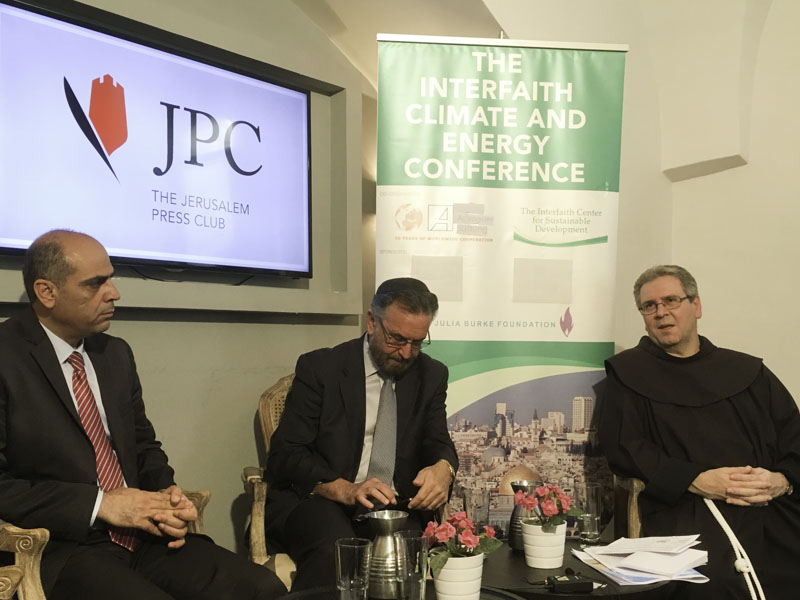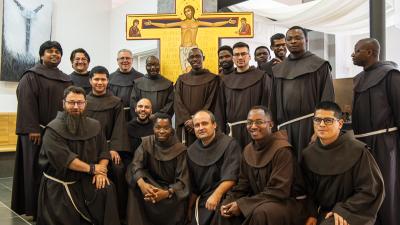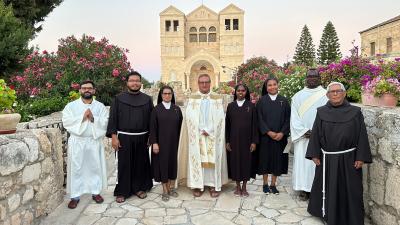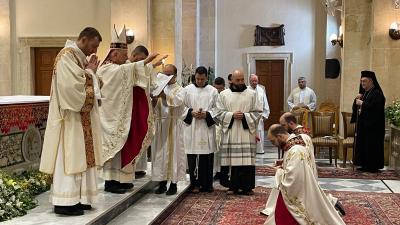
Some religious Christians, Jews and Muslim authorities met to discuss the climate change crisis and the challenges and responsibilities that this issue raises.
RABBI YOANTAN NERIL
Founder of The Interfaith Center for Sustainable Development
"This is not a bird, nor a tree, nor a bee crisis. This is a crisis of the human race concerning the way we, spiritual beings, live in a material world.”
This is how the Interfaith Climate and Energy Conference started, organized at the Jerusalem Press Club by the Interfaith Center for Sustainable Development with the goal of addressing the climate change emergency.
RABBI YOANTAN NERIL
Founder of The Interfaith Center for Sustainable Development
"The reason we met today, bringing together Jewish, Christian and Muslim authorities in Jerusalem and in the Holy Land, is to demonstrate that high religious offices are particularly concerned with this issue."
The chief judge of Islamic tribunals in Israel, Kadi Iyad Zahalha, rabbi David Rosen, International Interreligious Affairs Director and Custos of the Holy Land Francesco Patton, faced what scientists see as the greatest threat to global health of the 21st century.
In a context in which the climate has been warming for more than 30 years, progressively and without interruption, with a global average temperature and a record high carbon dioxide concentration and disastrous environmental, economic and health impacts, the three lecturers dealt with this topic from an unusual point of view.
Fr. FRANCESCO PATTON, ofm
Custos of the Holy Land
"We as Christians have a heritage of ecological spirituality that begins with the first pages of the Bible, since they speak of creation as the work of God entrusted to men. So there must be responsibility of all humanity toward creation. "
RABBI DAVID ROSEN
International Interreligious Affairs Director, AJC
"The first indication to humanity, given in the Garden of Eden to Adam and Eve, was to develop and guard the creation of God, that is, sustainable development. If we do not behave in a sustainable way towards the world, we are actually offending God."
Personal education and example are two themes shared by the three speakers. It is imperative to intervene in schools and religious environments to make young people aware, and it is even more necessary to give an example in everyday life.
"To be responsible for the planet, not only as a response to the task given by God but also out of respect for future generations”, Zahalha emphasizes.
The goal, according to Custos Patton, is Ecological Conversion: changing oneself to change the world then. How? Acting together with the whole 'human family', as Pope Francis recalled in his encyclical Laudato Sí, whose title recalls the Canticle of the Creatures of the saint of Assisi.
Fr. FRANCESCO PATTON, ofm
Custos of the Holy Land
"This awareness of being part of a universal fraternity is also what makes us understand how, beyond professing different faiths and practicing different religions, as women and men of goodwill, we are all called to take care of these brothers and sisters and, in the case of the earth, we are called to take care of a sister who is also a mother to us.”




